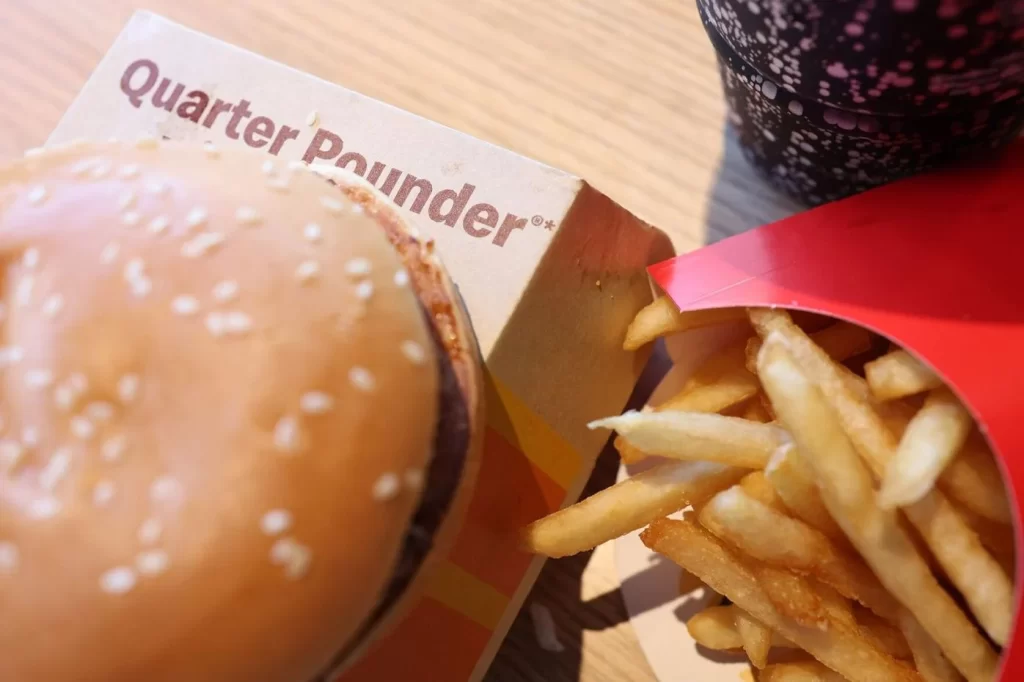
Recently, McDonald’s has made the significant decision to remove Quarter Pounders and fresh, slivered onions from the menu in approximately 20% of its U.S. locations due to a concerning outbreak of E. coli poisoning. This outbreak has been linked to 49 reported cases across 10 states, with 10 individuals requiring hospitalization and one confirmed fatality.
The Centers for Disease Control and Prevention (CDC) indicates that the majority of E. coli cases are emerging from the western and Midwest regions of the country. Health officials are actively investigating the source of the outbreak, and other food companies are also recalling onions as a precautionary measure.
Scope of the Outbreak
As of now, 49 cases of E. coli have been documented, primarily in Colorado and Nebraska. In Colorado alone, 26 individuals have reported illness, including one older adult who tragically passed away. One child has been hospitalized with hemolytic uremic syndrome (HUS), a severe complication that can lead to kidney failure.
The CDC noted that the first case was recorded on September 27, but McDonald’s was only alerted to the potential issue recently. Interviews with affected individuals revealed that many had consumed Quarter Pounders prior to falling ill. The menu changes impact restaurants in several states, including Colorado, Kansas, Utah, and parts of Nebraska and beyond, while other burger options remain available.
In light of the outbreak, Burger King announced that around 5% of its outlets receive onions from a potentially implicated supplier, prompting the chain to dispose of the onions as a precaution.
Investigating the Source
Current investigations suggest that onions may be a key factor in the outbreak, especially given their role as a common topping for Quarter Pounders. However, the CDC and FDA have not ruled out the possibility that the beef patties themselves could be involved. McDonald’s maintains that their burgers are cooked to 175 degrees Fahrenheit, well above the 160 degrees necessary to eliminate E. coli.
Due to the fact that sick individuals purchased food from various locations, McDonald’s believes food preparation practices are unlikely to be the cause. The company sources its beef from multiple suppliers, but all affected stores used a single supplier for onions, identified as California-based Taylor Farms, a major vegetable processor. In response to the outbreak, Taylor Farms has voluntarily recalled certain onion batches, despite testing showing no traces of E. coli.
Yum! Brands, which owns Taco Bell, Pizza Hut, and KFC, is also monitoring the situation and has decided to remove fresh onions from select locations as a precaution.
Understanding E. coli Poisoning
E. coli refers to a diverse group of bacteria commonly found in the intestines of humans and animals. While most strains are harmless, some produce toxins that can cause severe illness. Symptoms of E. coli poisoning include severe diarrhea (often bloody), stomach cramps, vomiting, and fever, typically appearing three to nine days after consuming contaminated food. In some cases, infections can lead to more serious health issues, including kidney failure.
Impact on McDonald’s
Following the outbreak’s announcement, McDonald’s shares fell by 7%, although they have since regained some value. The company stated it is too early to gauge the full impact on sales but is optimistic about removing the issue from its supply chain and restoring Quarter Pounders to affected locations within weeks. This outbreak comes at a challenging time for McDonald’s, as shifting consumer spending habits have already forced the chain to rely heavily on discounts and promotions.
Legal Actions
In response to the outbreak, the first lawsuit has been filed against McDonald’s by Eric Stelly, who fell ill shortly after eating at a restaurant in Greeley, Colorado. After seeking emergency care and testing positive for E. coli, Stelly’s case was confirmed to be linked to the outbreak. His lawyer has stated that they intend to ensure all victims are fully compensated and that McDonald’s and its suppliers rectify the health violations that contributed to the contamination.
As the investigation continues, health officials and consumers alike are urged to remain vigilant and informed about food safety practices.








